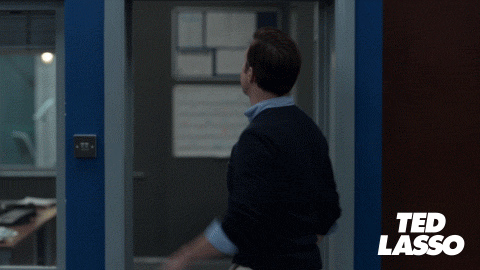Exploring The Fundamental Importance Of Belief
Experts say it's literally what sets us apart from the rest of the animal kingdom. Ted Lasso/Apple TV+/Giphy
Ted Lasso/Apple TV+/Giphy
News that is entertaining to read
Subscribe for free to get more stories like this directly to your inbox“You’ve got to believe in something.”
As it turns out, this is more than just the title of the Spin Doctor’s third album. Beliefs are crucial for humanity in a way that is completely different from all other animals.
But why do people form the beliefs and convictions that they have? Well, the short answer is: It’s complicated.
Starting at the beginning
As Princeton University anthropology professor Augustin Fuentes pointed out, there’s something very unique about human babies. Unlike other animals, an infant’s brain is less than half its adult size and, at least for the first few years, children are able to do almost nothing for themselves.
Meanwhile, most other young animals are walking, flying, swimming, or otherwise living a fairly independent life almost immediately after they’re born.
Because human brains take so long to develop, the world around us becomes a huge influence on what we consider our realities.
Input from those around us and the environments in which we are raised give each of us the perspective on which we will build our beliefs.
Good news and bad news
Shared belief systems are important for human society. For example, we all have faith that money is valuable — and our economy would collapse without that common belief.
But on a personal level, we also form beliefs that put us into smaller groups. From religion to politics, these can be harmless and even beneficial … or they can be tools used to divide us.
On one hand, our personal values can help us find meaning in the world. Studies show that our brains, muscles, and hormones actually react differently based on the structures formed by those beliefs.
At the same time, however, most disputes, conflicts, and wars are, at their roots, based on groups who have fundamentally opposing beliefs.
 Why Is The Aging Voyager 1 Probe Sending Back Incoherent Communications?
It's been speaking gibberish for a few months and officials are concerned.
Why Is The Aging Voyager 1 Probe Sending Back Incoherent Communications?
It's been speaking gibberish for a few months and officials are concerned. One Woman’s Massive Donation Is Wiping Out Tuition At This Medical School
Her inheritance came with the instruction to do "whatever you think is right."
One Woman’s Massive Donation Is Wiping Out Tuition At This Medical School
Her inheritance came with the instruction to do "whatever you think is right." Woman’s Pets Will Inherit Her Multimillion-Dollar Fortune, Not Her Kids
It's not the first time four-legged heirs were named in a will.
Woman’s Pets Will Inherit Her Multimillion-Dollar Fortune, Not Her Kids
It's not the first time four-legged heirs were named in a will.